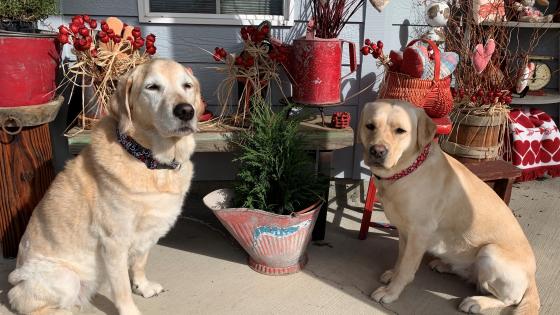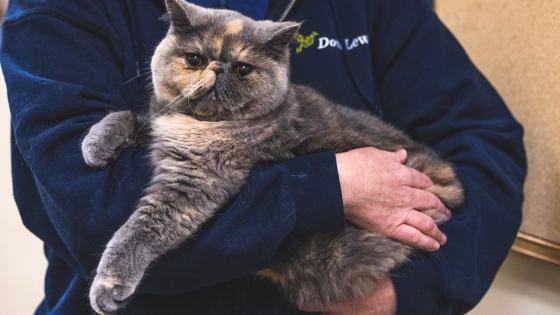
What’s Toxic to Pets in Summer? Common Plants, Foods, and Chemicals to Avoid
Summer brings sunshine, outdoor adventures, and longer days spent with our pets. But it also brings some seasonal hazards that many pet owners may not realize can be dangerous. Certain plants, foods, chemicals, and even human medications become more common this time of year — and can be harmful if pets get curious and ingest or come into contact with them.
Here’s a quick guide to help you keep your pets safe and avoid an emergency vet visit this summer.
Summer Garden Hazards
This time of year is full of beautiful blooms, but some of the most common summer plants can be toxic to pets:
- Oleander: A highly toxic flowering shrub that can cause serious heart problems.
- Lily of the Valley: Often blooming in early summer, this plant contains cardiac glycosides that affect heart function.
- Foxglove: A stunning summer bloomer — but dangerous if ingested due to its heart-toxic compounds.
- Rhododendron and Azaleas: Popular landscaping plants in the Pacific Northwest that can cause vomiting, diarrhea, weakness, and even heart issues.
- English Ivy: Common in shady gardens and public spaces; ingestion can lead to vomiting, abdominal pain, and excessive drooling.
If your pet tends to nibble on plants or explore with their mouth, be extra mindful during walks or time in the yard.
Foods to Keep Your Pets Away From
Barbecues, picnics, and backyard meals are staples of the season — but some popular summer treats are dangerous for pets:
- Grapes and Raisins: Even small amounts can lead to kidney failure in dogs.
- Onions and Garlic: Common in marinades and side dishes; can cause anemia in pets.
- Chocolate: A year-round risk, but chocolate contains theobromine, which affects the heart and nervous system.
- Corn on the Cob: Kernels are okay, but the cob can cause choking or intestinal blockage.
- Macadamia Nuts: Can lead to tremors, weakness, and overheating in dogs.
- Xylitol (Artificial Sweetener): Found in sugar-free gum, baked goods, and some condiments — can cause dangerous drops in blood sugar and liver failure.
- Alcohol & Boozy Foods: Found in desserts, sauces, or spilled drinks — alcohol can cause vomiting, tremors, or worse.
Keep pets away from the grill area, and never leave food or drink unattended on low tables or picnic blankets.
Summer Chemicals and Lawn Care Risks
With all the summer lawn care, pool time, and pest control, pets can come into contact with harmful substances more often than we realize:
- Fertilizers & Pesticides: Can cause drooling, vomiting, or worse if licked off paws or ingested.
- Antifreeze & Coolants: Even in summer, these may be accessible in garages or driveways. Just a small amount can be deadly.
- Pool Chemicals: Chlorine and algaecides can irritate the mouth, skin, or stomach if ingested.
- Insect Repellents & Flea Products: Only use pet-safe versions and follow all label instructions closely.
- Rat Poison (Rodenticides): Warm weather can bring out more pests — and more traps or poison. These are extremely dangerous to pets and can cause internal bleeding, seizures, or even death.
Keep all chemical products locked away and prevent pets from walking or rolling on recently treated areas.
Medications to Keep Out of Reach
Whether you’re traveling, managing allergies, or applying summer skincare products, your pet may have more access to potentially harmful medications:
- Ibuprofen & Acetaminophen: Common painkillers that can cause severe liver or kidney damage.
- Antidepressants: Can lead to tremors, lethargy, or seizures.
- Allergy & Cold Medications: Many contain ingredients toxic to pets, such as pseudoephedrine.
- Topical Ointments & Sunscreens: Some human versions contain zinc or salicylates, which are unsafe for pets if licked.
Store all meds well out of reach, and never apply any product to your pet that isn’t labeled for veterinary use.
What to Do if You Suspect Toxin Exposure
If you think your pet has ingested or come into contact with any toxin, don’t wait — call your veterinarian or get to an emergency animal hospital immediately. At DoveLewis, we’re open 24/7 to help when your pet needs it most.
You can also contact the ASPCA Poison Control Hotline at (888) 426-4435 for expert guidance on potential toxic exposures.
Keep Your Summer Safe & Happy
A little extra caution goes a long way. Watch what your pet explores, especially during outdoor meals or walks, and keep toxic items out of reach. Here’s to a safe, happy summer with the pets you love most!



